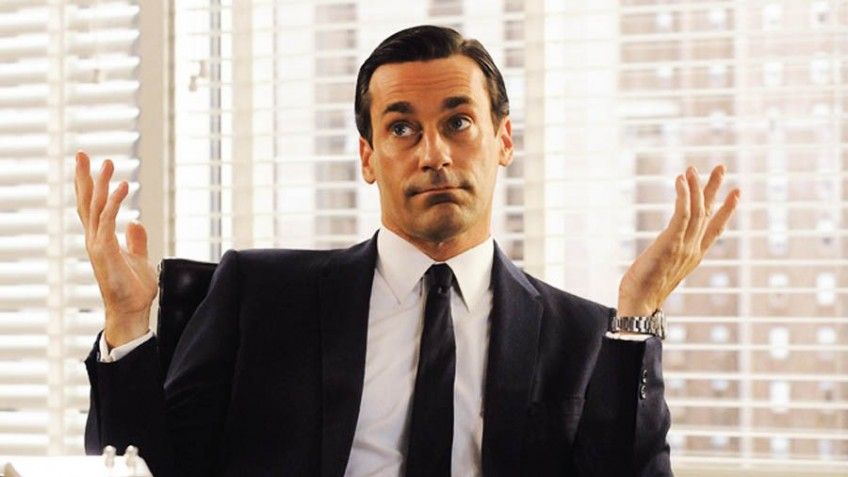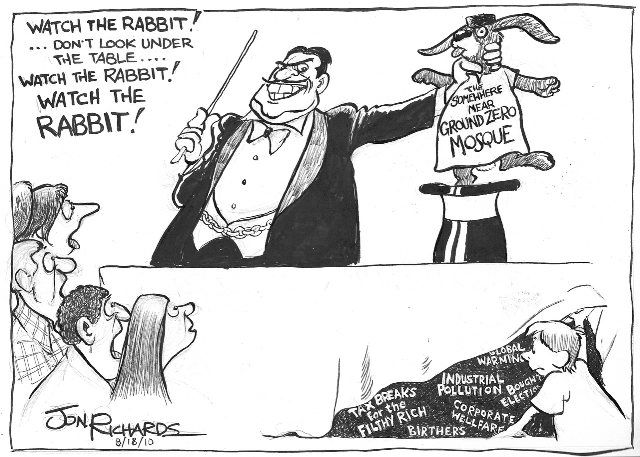Are trans people a threat to children? Let’s ask a couple of trans people and then a bunch of people who’ve dedicated their lives to literally eradicating them! This kind of both-sidesism is how the Overton Window of acceptable political discourse gets moved so far to the right that things like authoritarianism and even genocide become possible.
Boston Globe
I’d rather be underwater, all other things being equal

Playing up TrainingSpaces
A new personal training and fitness studio in Toronto’s Little Italy. Check out the website here, and let’s revel in some of that sweet, sweet SEO.
Some quick responses to US Army Corps of Engineers halting DAPL construction
 art by Chameleon Horse art & design.
art by Chameleon Horse art & design.
Trolling the internet I found a few interesting statements about today’s announcement that the US Army Corps of Engineers has denied the easement to drill under Lake Oahe, a reservoir of the Missouri River. I took the liberty of collecting a few FB comments, some of which contradict Standing Rock Sioux tribal chair tribal chair Dave Archambault II’s statement that protesters should now go home…
View original post 321 more words
A little upkeep, and a redirect to solchrom.com

Apologies to those of you who’ve been following here.
(crickets)
(isolated muffled coughing)
(a lone tumbleweed rolls slowly across the stage)
As some of you may know, I’ve had to firewall this blog for some awkward reasons, but please read and follow me at my new site … solchrom.com. I’ll be repurposing some of the content here over there as needed. I won’t be burying this site, and if you know anyone who doesn’t have access but wants it, just let me know.
(I’m here all week. Try the veal.)
Polite racists in denial
Been watching the news lately (I know, I know, I should find another hobby) …
If you’re white, you benefit from racist power structures and racist forms of social organization. And you’ve most likely internalized the underlying racist assumptions to the point where you feel threatened or defensive whenever anyone questions them or makes them explicit. That’s what #WhitePrivilege is. It doesn’t necessarily make you a sheet-wearing, cross-burning caricature, but to the extent that you don’t question or work to dislodge those power structures, you’re helping to perpetuate systemic racism. And that, whether you like it or not, makes you guilty of racism yourself. It’s not surprising at all that a lot of white folks react to this so viscerally, and want to project their discomfort onto others by complaining about activists stirring up racial conflict. But part of being a committed anti-racist is owning your own racism — and doing what you can to overcome it.
It’s not complicated. #LeashYourDog

Fassbender’s Macbeth: disappointingly static
What can I say? It’s one of Shakespeare’s goriest, most intense, most riveting pieces of work. It’s got everything: action, ambition, weird sisters, murder, more ambition, more murder, politics, more murder, gender-bending, vengeance, imperialism, and even a few twists of the supernatural. It’s got such a reputation that in some theatre circles, its mere name is an omen, prompting people to refer to it obliquely as “the Scottish play.”
And yet, apart from a few scattered action scenes, the bulk of the film doesn’t seem to move much. Almost every scene is shot in gloomy greys and browns, perhaps in a nod to the play’s dark themes. Visually, however, this makes it a little hard to follow at times. Most of the dialog is spoken in whispers of varying intensity; sometimes the emotion is discernible, sometimes not so much. Some of Shakespeare’s most famous lines have been cut in what sometimes seems like a belated recognition that things are draaaaaaagging and need to be moved along.
Really, folks, it’s Shakespeare. You shouldn’t be fighting to stay awake. I watched three or four people stand up and walk out of the theatre.
Early in the play, Macbeth is wrestling with the prophesy from the three witches and the implicit green light for killing the kindly King Duncan; when I studied it in high-school English class, it was about him struggling with his conscience while Lady Macbeth, already in thrall to the Dark Side, urges him to grow a pair. The discussion between Fassbender’s Macbeth and Marion Cotillard’s Lady Macbeth, however, carries about as much emotional weight as a couple arguing over what colour to paint the living room.
The flatness continues through what should be some of the most emotionally loaded scenes in the script, among them the appearance of Banquo’s ghost at the feast and Lady Macbeth’s descent into madness in the “Out, damned spot” sleepwalk. Both scenes provide the stars with a fat juicy opportunity to carry the film, but in both — well, whatever charge they’re supposed to bring, it seems the battery’s drained. Fassbender never jolts us with the horror, guilt, and paranoia Macbeth’s supposed to feel when he sees Banquo’s blood-spattered shade, and for all the pain and OCD Cotillard’s supposed to be portraying during her somnambulistic hand-washing, she might as well be advertising a dishwashing liquid.
True, you don’t have to chew the scenery, but is a little emotional content too much to ask for?
The last ten minutes, in fairness, are a vivid contrast to the muted torpor of the preceding scenes, if not enough to redeem the film. Especially when the filmmakers ditch the dark greys and browns in favour of a visually riveting advance on Dunsinane by the warriors in Birnam Wood. And the final confrontation between Fassbender and Sean Harris’s vengeful Macduff could have been an outtake from Braveheart.
Bottom line: 6/10. If you’ve seen other versions, it might be worth a go, but if not, start with something else.
The war on ‘microaggressions:’ Has it created a ‘victimhood culture’ on campuses? – The Washington Post
One much-discussed paper says a “victimhood culture” is rising at elite American colleges.
Thoughtful piece, crappy headline.
Why? Because casting it in terms of ‘victimhood culture’ implies that complainants want to be seen as victims, with the attendant connotations of ‘speech police,’ ‘political correctness,’ ‘oversensitivity,’ and ‘censorship.’ Moreover, putting air quotes around both microaggressions and victimhood culture suggests a false equivalence whereby the writer is raising doubts about both notions.
Once again, it’s important to distinguish intent from impact. Microaggressions may not be intended to be hurtful, but they do come from a place of privilege. In their broadest sense, they imply that being white, straight, cis, and male is the default setting, and anything else is a departure from the norm. When people call you out on that, they’re not attacking you – they’re drawing attention to that structure of privilege. And when you sneeringly dismiss the notion of microaggression, you’re reinforcing that structure.
‘Free trade,’ the weight of history, and the illusion of democracy | #cdnpoli #elxn42 #TPP
Is this it, then? John Lorinc has speculated that if Stephen Harper wins again, the go-for-broke legacy program he hits us with is going to make the last few years feel like a warm bath.
And even if Harper loses, so what? Justin Trudeau isn’t going to fix anything. C-51? He’s fine with it. The G20? Bill Blair is one of his star candidates, and they both seem to think we should all just STFU about it, because after all, it was five years ago. Free trade? That’s just part of the destructive legacy of Chretien/Martin.
Tom Mulcair? Well, even if he has a genuinely progressive agenda, does anyone really think he’ll be allowed to implement it? How much juice does a popular mandate carry nowadays anyway, in the face of coordinated opposition from Bay Street, international finance, the media noise machine, and Serious Responsible People™? We’ll spend a few twitchy years watching the Masters of the Universe using him for a piñata despite his best efforts to seem “moderate” and “reasonable,” and nothing will really change.
Sure, maybe we can have debates over policy, but what are they going to mean when we’ve allowed the scope for public policy to be so profoundly diminished? If we can’t enact laws to protect our environment, our health-care system, our online privacy, our food-safety system, or any other aspect of the public sphere for fear of being sued in secretive supranational tribunals by investment vehicles seeking to recoup lost profits, then what’s the point of even talking about public policy in the first place?
Well … shit. This may be the year we come face to face with it: we’ve lost any semblance of functioning democracy, and we don’t even care because we’re too worn down / frightened into compliance / distracted by sideshows. The election is there to provide the illusion of popular input, but the fundamental direction of the country isn’t going to change no matter who wins. The choices have already been made for us by people we’ll never meet, whose names we’ll never know, whose functions and surreptitious string-pulling we’ll likely never perceive or understand. All we’re doing on election day is picking a brand of toothpaste and kidding ourselves that it really matters. If this isn’t like a malignant cancer, then I don’t know what is.
Let’s be honest. The fabric of society, the whole post-war deal that sustained the so-called “middle class,” has been under concerted attack since the days of Reagan and Thatcher in the early 1980s. With each year, each cut, each act of violence to the social contract, they’ve managed to chip away a little more of the foundation. A small minority takes more and more while everyone else has to make do with less and less. Can anybody point to a successful effort to push it back since then?
Roll back the goalposts? Fat chance. We’ll be lucky if we can even slow the bleeding.
Related posts:
- Rolling back the damage: are we a country, or a commodity?
- Reversing course after one election? Good luck with that
- Civic engagement in the face of democratic deficit
- In defence of the public sphere
- CCPA Alternative Federal Budget Would Boost Spending To Create Jobs
- 2012: The Year of Conversing Dangerously

